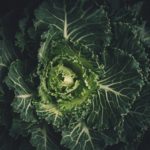Spring dreams are enchanting, whether they be reminiscence of good ol’ days or aspirations for days to come. This daydream-like poem has made Toson Shimazaki (1872-1943) a poet remembered by many Japanese people.
春の夢は魅惑の夢。古き良き時代の思い出、やがて来る日への期待。島崎藤村は、この幻想的な詩によって、多くの人々に記憶されています。
This poem, “First Love”, contains all we need to get connected with childhood memories, especially of puppy love. The change of hairdo marks a coming of age. A thrill comes by recognizing a slight change in the look of your love interest particularly when it indicates maturity. An act of giving and receiving strengthens intimacy.
この詩は、子供のころの思い出、とりわけ淡い初恋を思い起こす要素がちりばめられています。例えば、髪型の変化が成人を意味するのですが、気になる人が大人っぽく変身するとドキッとしたり、何かをあげたりもらったりすることで親密さが増したり。
The third stanza is quite unique for its sensual tone. It represents growth of love as the stanzas proceed. From an exchange of gaze to gifts, and now the physical distance doesn’t get in the way developing a closer bond.
第三連に入ると、官能的なトーンが加わって、独特の雰囲気を帯びてきます。詩としての進行に合わせるように恋が進行します。視線のやり取りから、物のやり取りへ、そしてより親密なつながりが生まれるとき、二人の間に物理的距離がなくなっていく。
This poem, First Love, is not just a poem of puppy love but has achieved Japanese phonetic and rhythmic perfection. Fixed number of syllables and phonetic repetition have made this poem elegant and easy enough to recite, which is why this poem is remembered by so many people.
もちろん、淡い初恋を歌っただけではありません。日本語の音韻やリズムが完璧で、定型詩と繰り返される音韻が、優雅かつ口ずさみやすく、それもあって多くの人の記憶に残っているのでしょう。
We can’t live in a daydream. We need to live this moment and live on our lives. Our lives, however, get hard and we sometimes feel disintegrated, fragmented and trapped in negativity. Daydream helps us reconnect with what we have deep down, which sustains us and helps us survive with its magic to unwind our strained thoughts and views on what surrounds us and to shed light on what we hoard in the back of our mind. Those colors of green and red of apple trees, those pain and joy, those bonds you created with someone you really care. All comes up into light when you are in a daydream.
夢の中に生きることはできません。この瞬間、この人生を生きなければならない。しかし、時に自分がバラバラでお先真っ暗に思えることもある。でも、夢によって、私たちは心の奥底にあるものとつながれるので、その魔法のような力で、がんじがらめになっていた考え方を解きほぐしてもらい、忘れてしまっていたような記憶に光をあててもらえる。その力で、日々を生き抜くこともできたりするのです。林檎の木の緑や赤、苦しみや喜び、大切な人との絆。夢のような思いの中で、こうしたものが立ち現われもするのです。
初恋
まだあげ初めし前髪の
林檎のもとに見えしとき
前にさしたる花櫛の
花ある君と思ひけりやさしく白き手をのべて
林檎をわれにあたへしは
薄紅の秋の実に
人こひ初めしはじめなりわがこゝろなきためいきの
その髪の毛にかゝるとき
たのしき恋の盃を
君が情けに酌みしかな林檎畠の樹の下に
おのづからなる細道は
誰が踏みそめしかたみぞと
問ひたまふこそこひしけれFirst Love
There you were under the apple tree
You look grown up overnight with your hairdo
And that flowery pin, in the full bloom of beauty,
Just took my breath awayYou reached your hand so fair
To give me an apple growing ripe and red
As a token of your love, I do care
But didn’t know what it was like to love somebodyWhen I’m totally carried away
I’m afraid you might feel my breath on your hair
If my love is like a glass
Your love fills me with intoxicating mellownessUnder the apple trees runs what we call
The path – you ask me, even when you know the answer,
It looks well beaten, but who made it after all?
Which makes me love you more

















